Digital Humanities

Digital Humanities at the Denbo Center
Digital humanities at the University of Tennessee is located at the intersections of computing science and humanities concerns. It spans disciplines and types of projects, with projects ranging from digitization of archival materials so that they can be more easily accessed outside of museums or libraries, to cultural analytics, to 3D mapping of archeological sites, to educational technology applications, to digital film studies, to game studies and gamification of learning. It includes data analysis as well as artificial reality technologies.
DH brings the humanities into conversation with the digital world of computing science and opens new ways of doing humanities research.
The Denbo Center oversees a number of DH initiatives at the Knoxville campus:
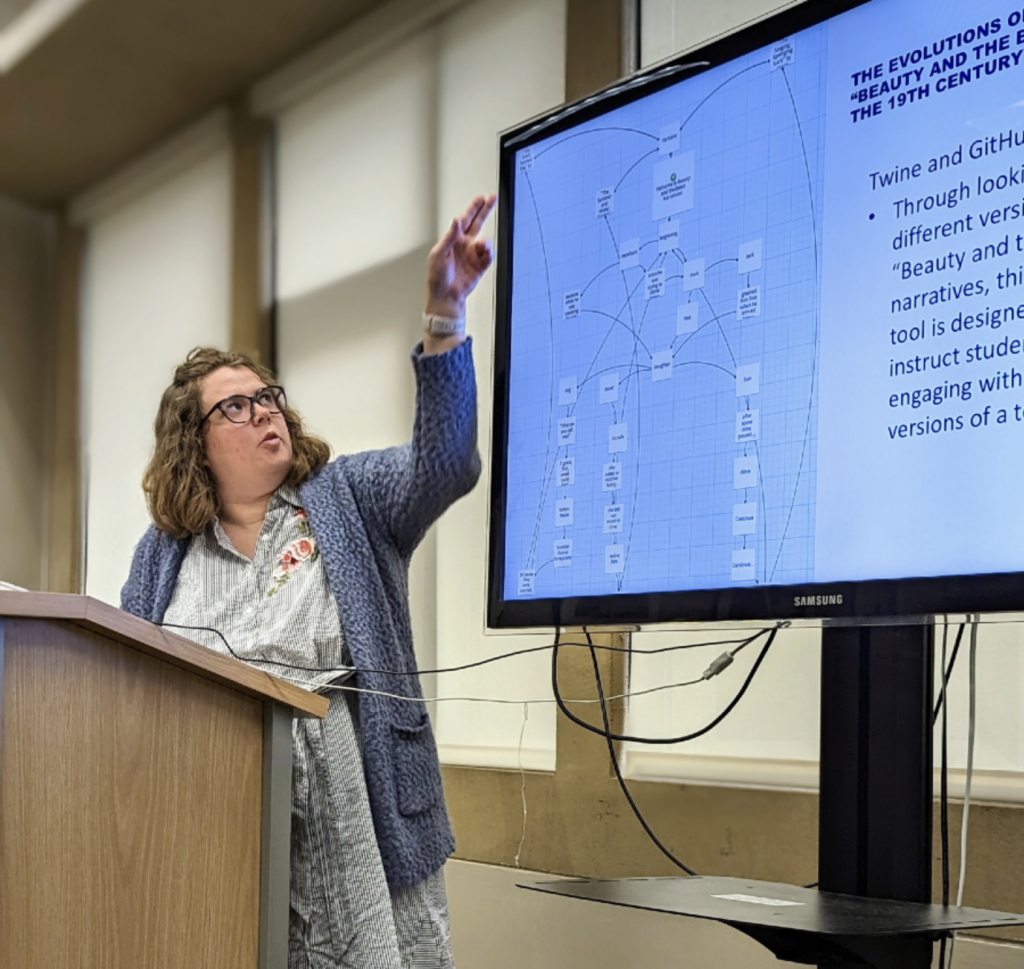
Digital Humanities Training
The Denbo Center supports a variety of opportunities for UT faculty, staff, and graduate students to participate in digital humanities training workshops, institutes, and other events. Opportunities include:
- Graduate Certificate in Digital Humanities
- Funding to attend the National Humanities Center’s annual “Podcasting the Humanities” Institute. UT attendees have created podcasts exploring ChatGPT and other Ai platforms; the impact of the coronavirus pandemic upon local communities in the South; the connections between memory and material items; and asking questions about how languages shape us and how we, in turn, shape language.
- Funding to attend the annual Digital Humanities Summer Institute (DHSI), in partnership with UT Libraries.
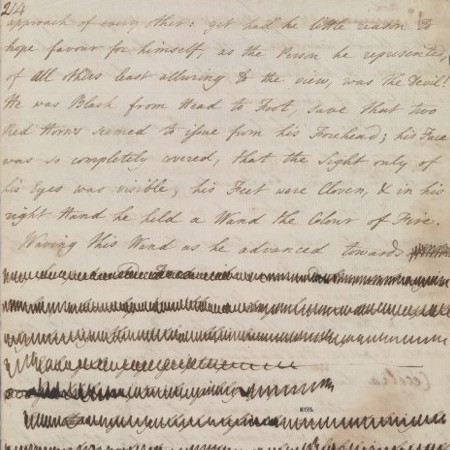
UT Faculty Fellowship in Digital Humanities
In partnership with UT Libraries, this fellowship offers one semester free of teaching and service to a UT faculty member working centrally on a digital humanities project. Learn more about the fellowship here.
Former DH Faculty Fellow Hilary Havens (UT English) received a 2022 NEH Humanities Collections and Reference Resources Foundations Grant to support the Maria Edgeworth Letters Project.
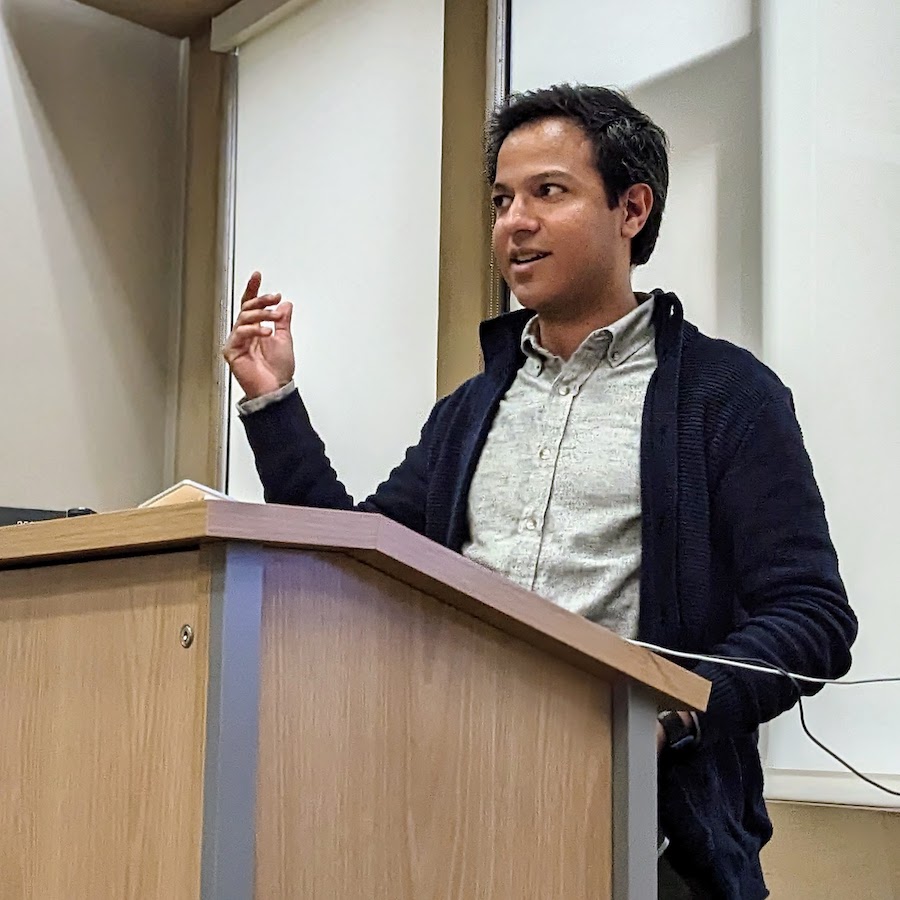
Oversight of the “Illuminate” Community of Scholars
Supported by the UT Office of Research, this group serves to inspire interdisciplinary collaboration, spark cross-campus creativity, build a community of practice, help faculty to share research topics and methods, and raise the profile of digital scholarship in the arts and humanities. Fostering collaboration, networking, visiting lectures, hands-on training, and cross-pollination among faculty, librarians, artists, and technologists, the core work of this group is to advance arts and humanities research into new digital realms. Learn more about UT’s Community of Scholars programs and email us to join the Digital Humanities Community of Scholars.
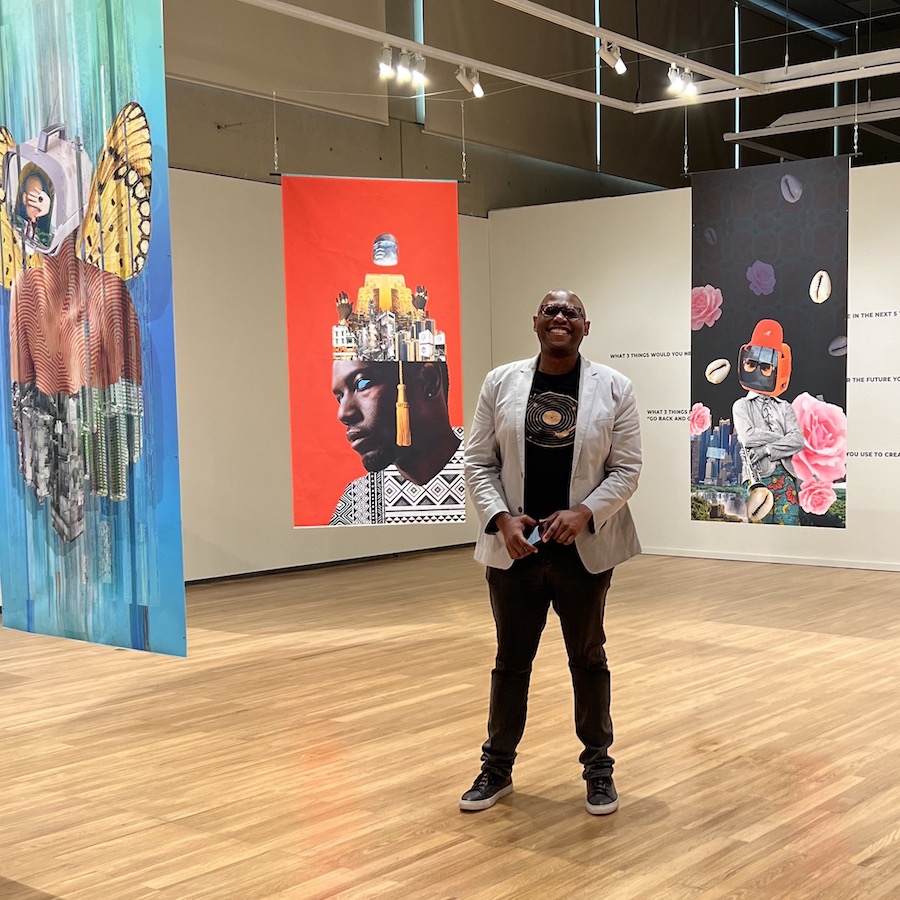
The “Dialogues” lecture series, which is a mini-series within the DCHA’s Distinguished Lecture Series. This series has brought notable DH researchers to campus, such as Marisa Parham, Paul Jaskot, Michael Witmore, Vinton Cerf, Julian C. Chambliss, and Lauren Klein.
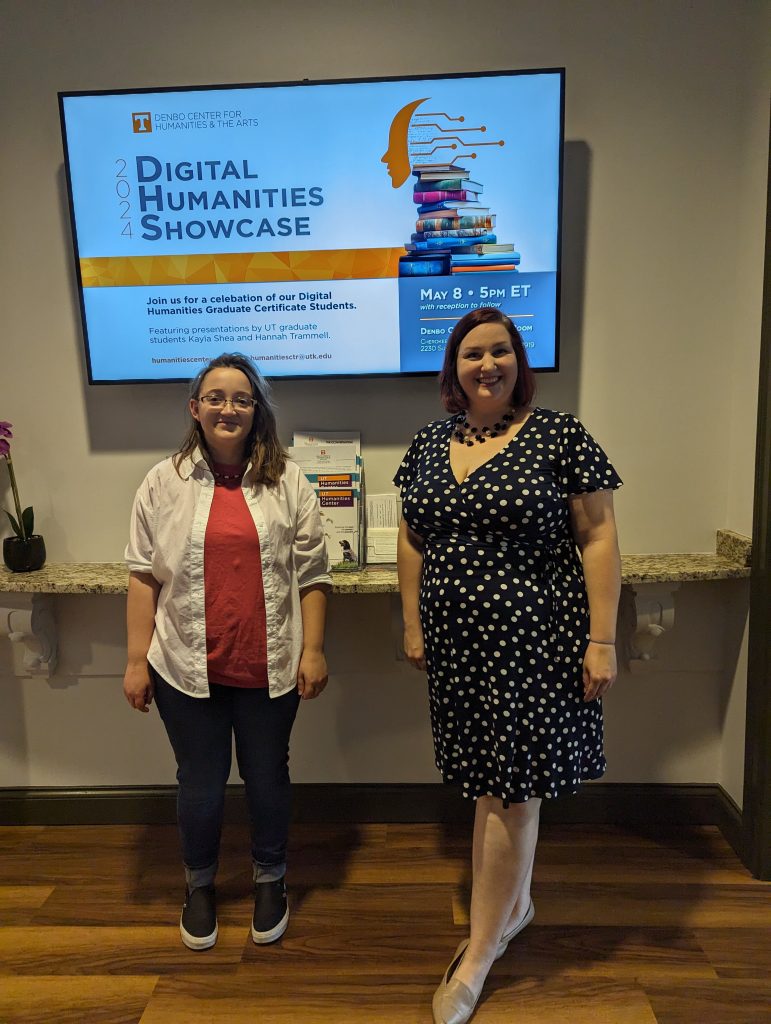
Digital Humanities Showcases
The DCHA hosts an annual showcase in the spring for graduate students completing the DH Graduate Certificate program, during which the students give short presentations on their DH portfolios.
The Center also hosts a faculty DH showcase as an opportunity for faculty to see the kinds of DH projects that are possible and to learn from and collaborate with one another.
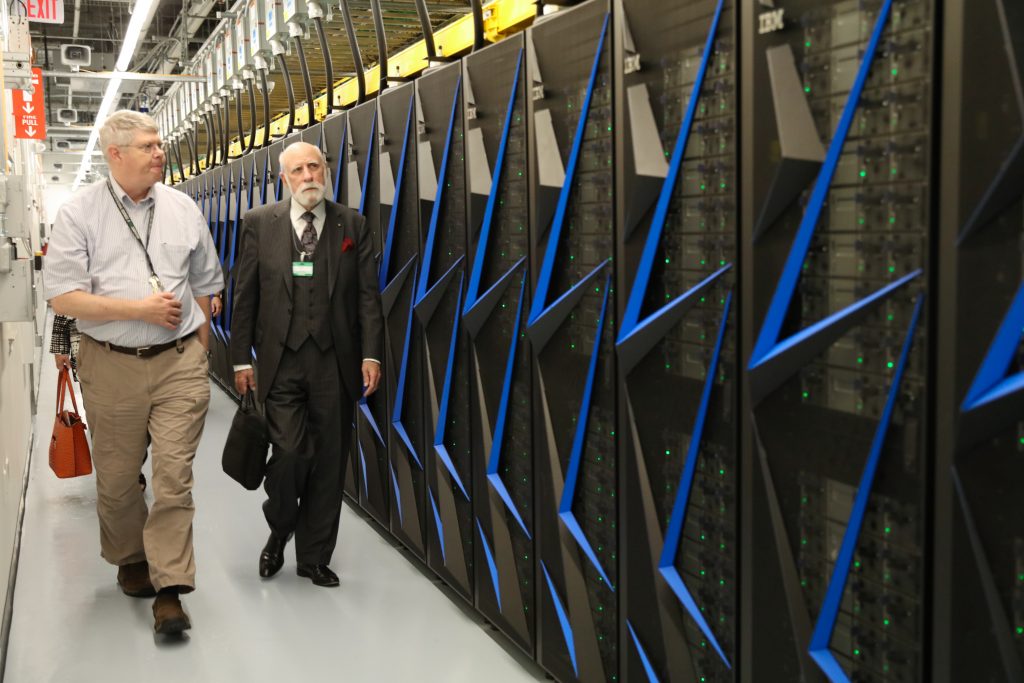
Computing Connections
As a world leader in computing science, with ties to the Oak Ridge National Laboratory, the University of Tennessee offers unique opportunities to develop DH research.
WATCH: Our 2019 Distinguished Lecture Series featured a joint talk by Vinton G. Cerf, VP and Chief Internet Evangelist of Google, and Michael Witmore, Director of the Folger Shakespeare Library in Washington, DC. Below, Cerf talks with Witmore and DCHA Director Amy Elias about the relation between the computing sciences and the humanities.
In addition, the Denbo Center is working on funding and supporting a number of initiatives that will advance DH research and teaching at our UT Knoxville campus:
- Creation of new humanities computing undergraduate classes, based on NEH grant funding and other funding sources.
- Funding for external postdoctoral researchers who can work with faculty on instructional design as well as oversee an annual “digital bootcamp” offering training in software and design for UT faculty and advanced graduate students.